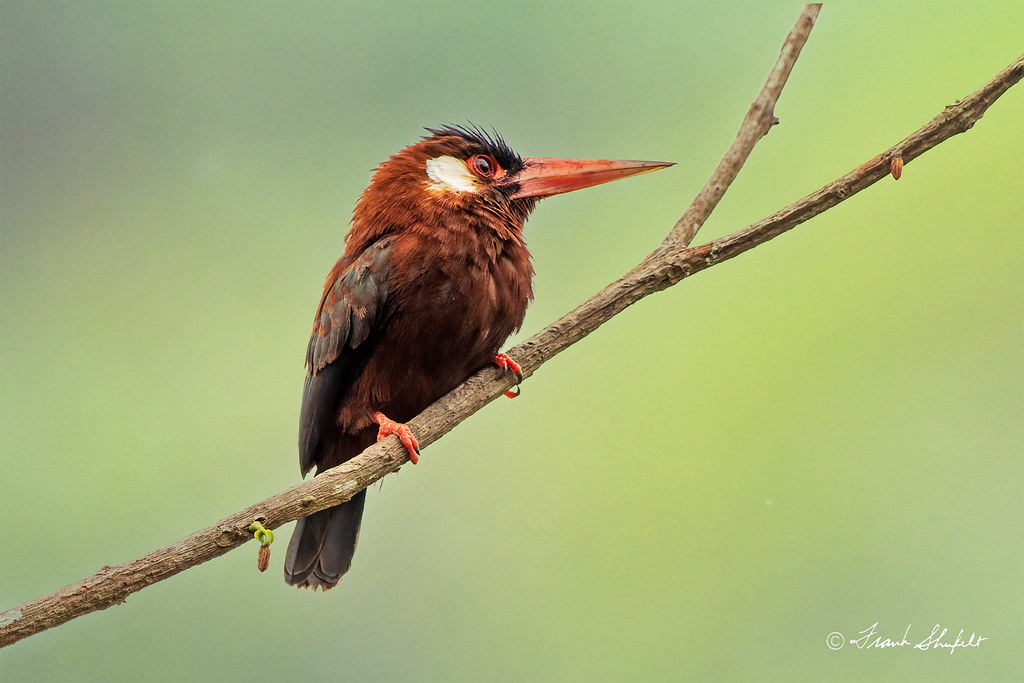
Nombre en español: Jacamar Orejiblanco
Nombre en ingles: White-eared Jacamar
Nombre científico: Galbalcyrhynchus leucotis
Familia: Galbulidae
Canto: Andrew Spencer

El jacamará orejiblanco o jacamar orejiblanco (Galbalcyrhynchus leucotis) es una especie de ave piciforme de la familia Galbulidae que vive en Sudamérica.
DISTRIBUCIÓN Y HÁBITAT
Se encuentra en Brasil, Colombia, Ecuador y Perú. Su hábitat natural son las zonas pantanosas tropicales.

WHITE-EARED JACAMAR
The white-eared jacamar (Galbalcyrhynchus leucotis) is a species of bird in the family Galbulidae.
It is found in the Amazon Basin of western Brazil, Colombia, Ecuador and northern Peru. Its natural habitats are subtropical and tropical swamps and heavily degraded former forest.

The White-eared Jacamar is the geographically more widespread of the two species that comprise the genus Galbalcyrhynchus, which is restricted to western Amazonia.
The other species, the Purus Jacamar (Galbalcyrhynchus purusianus), replaces the White-eared Jacamar to the south of its range. As its name suggests, the White-eared Jacamar’s most striking plumage feature is the conspicuous white ear coverts-patch, and this immediately distinguishes the present species from its only congeneric. Both species are otherwise chunky-bodied, broad-winged, and short-tailed jacamars, with overall reddish-chestnut plumage.

The White-eared Jacamar ranges from southern Colombia south to northeast Peru, and east through western Brazil, at least as far as the confluence of the Rio Solimões with the Rio Purus. It inhabits lowland primary forest, both terra firme and seasonally flooded areas, and is usually easily observed due to its liking for clearings and other semi-open areas, often beside rivers and streams.

